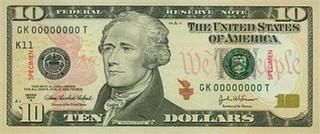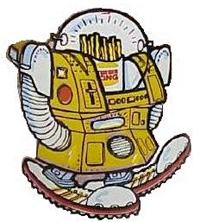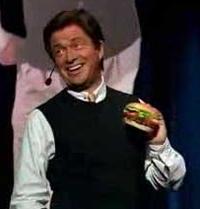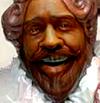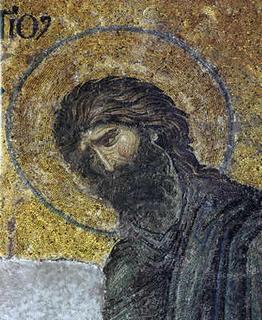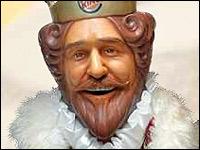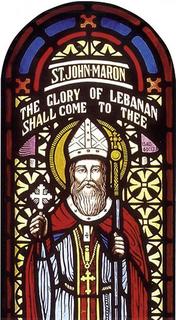On the previous post, GFvonB replied:
Not a veto on the King, but rather a limit on his funding. Government funding should come from a healthy balance of the King's private funds and taxation, and all new taxation must be approved / consented to by Parliament. If this functions as a limited veto in practice, so be it, but the King is the ultimate Executive, Legislative, and Judicial power within the State (which is not to say that he has absolute power, nor that he can willy-nilly, nor that he can infringe on the rights of the Church), and no one can veto him but his superior (Emperor or Pope).Now, while this would certainly be a superior system than any republican one which comes to mind, and while the King is the final/ultimate Executive/Legislator/Jurist in the state, my understanding of authority in Natural Law demands a different system of monarchy.
There are two sources of legitimate authority. One is the Divine Right or Divine Command, and the other Natural Law. Although one might be surprised by the title of the blog, I posit that secular kings (even Established-Catholicism kings) do not rule by Divine Right.
Since Christ, the only monarch who rules by true Divine Right is the Supreme Pontiff. Taking the phrase in its strict sense, in our world of free will, monarchs come to power by circumstance and may or may not be within God's blessing. Further, except for the papacy, no kingly throne was established by the direct Will of God. Christ in the Flesh did not say to William the Conqueror, "I give thee the Keys to The Kingdom of England. All that ye bind in London shall be bound in Heaven, all that ye loose in London shall be loosed in Heaven."
Of course, legitimate monarchs have the support of God insofar as it is immoral for a man to disobey legitimate authority, and God wills that all use whatever power they have for The Good.
It is presumtuous to assume that God wanted any given monarch to be where he is, any more than to guess that God wants someone to be president or wanted me to be an insurance salesman. Who knows? The argument that "The entire universe hangs on the Divine Mercy and Will, and therefore those kings that are, are there by the Will of God," discounts the free will of man, the influence of diabolic entities, and generally smacks of Oriental Fatalism.
So all other rules, save the Pontiff, draw their power from the Natural Law.
Atomization of Humanity is a problem common to republicanism, Divine Right monarchy, and Roman Civil Law/Code Civil. All of these systems, to one degree or another, place Man into two categories: ruler and ruled. Republicans see "The People," who choose leaders; Roman Civil Law distinguishes very clearly between "The State" and "The Rest;" Divine Rightists, although more clear-headed, still contend that authority flows from the top.
A good examination of Natural Law and subsidiarity in the light of Anglo-Saxon Common Law reveals a different reality. Individual persons are not the basic political unit, be they voters or emperors. In fact, politics is not possible without a relationship. There are no politics between two uninterested persons going their own way. They have no natural authority over one another.
So, what is the basic power relationship? The family. It starts as a wife subordinate to her husband, and later includes children subordinate to both. This is in our blood and in our souls and was the way of the world since God created Eve and put her under Adam.
From there, pragmatism and the Wages of Sin have seen to it that larger units be formed. But the old units are not removed, they simply delegate more power upwards in a patriarchal relationship. Multiple families delegate power to a Clan, the leader of which should view those families as his "children." Then clans cede some authority upwards to a Tribe, whereby tribes eventually appoint a Kingly Line, and kings gel together under an Emperor.
The paternal bond should never be loosened between any of these levels. Thus, the King, while now inviolable, still owes his power to the Lords of the Lands, who owe it to the Fathers of the Households. No one may have the power to remove the king, save the Divinely-sanctioned Pontiff, but the king must still operate within the framework granted him by the lesser patriarchs below him.
Thus the argument for some veto power to Parliament.
Thoughts?
 Left: A nice large shot of a Root Beer New York Seltzer Can.
Left: A nice large shot of a Root Beer New York Seltzer Can. Apparently, Original New York Selzter was from California. It was based on a family recipe from from Upstate New York, however. Probably from somewhere down in the Catskills, if a guess were to be had.
Apparently, Original New York Selzter was from California. It was based on a family recipe from from Upstate New York, however. Probably from somewhere down in the Catskills, if a guess were to be had.







